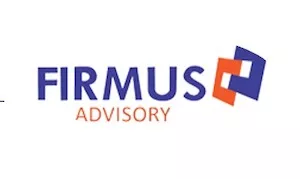- with Finance and Tax Executives
- in United Kingdom
- with readers working within the Technology, Media & Information and Metals & Mining industries
Figuring out how to set up a supermarket may be a daunting task considering the compliances involved to enable one to operate legally in Ghana. To set up a supermarket, there is the need to know the various regulatory compliances one must adhere to. A supermarket is a retail shop that sells food, either fresh or preserved and other household items. It involves buying goods in bulk at wholesale prices and selling to customers at retail prices for profit. The first step to operate a supermarket in Ghana is by registering the business with the Registrar General's Department. Registration of a supermarket is not exclusive to Ghanaians, in other words, foreigners are eligible to register a supermarket. A Ghanaian can decide to register a supermarket either as a sole proprietor business or a company limited by shares depending on the capital invested in the business. However, foreigners are required to register their supermarkets as a company limited by shares.
Procedure for starting a Supermarket in Ghana
1. Step 1 – Registration of the business with the Registrar General's Department.
Conduct a business Name search.
A business name is the name by which people know your business. Therefore, it is important to choose a name that is unique and relevant to your business. After choosing the business name you intend to use, the next step is to conduct a business name search. There is a need to embark on a business name search to ensure that no other person is using the proposed business name. After deciding on the business name, the next steps are;
- Download the appropriate registration forms from the Registrar General's Department's (RGD) website https://rgd.gov.gh/forms.html or purchase from the in-house bank at the Registrar General's Department.
- Complete the forms with the following information depending on the type of business registration, (Limited liability or Sole Proprietor registration);
- Company Name
- Nature of Business (Give a brief description of the company's business activities
- Registered Office
- Digital Address
- House Number/Building or flat Name
- Street Name
- City
- District
- Region
- Principal Place of Business
- Digital Address
- House Number/Building or flat Name
- Street Name
- City
- District
- Region
- Other place of business if any
- Personal details of directors, secretary and shareholders (nationality, date of birth, occupation, contact, email and residential address)
- Tax Identification Number of directors, secretary and shareholders
- Valid Certificate of qualification for the company secretary
- Authorized Shares
- Stated Capital
- Shareholding Structure
- Auditor's details.
Click here to read full detailed guidance on how to register business with the Registrar General's Department.
2. Step 2 – Registration with Food and Drugs Authority.
The FDA regulates the manufacturing, importation, and exportation, distribution, use and advertisements of foods, drugs, food supplements, herbal and homeopathic medicines, household chemical substances and tobacco in Ghana. All food products, whether imported, advertised, sold, or distributed in the country must first be registered with the FDA under section 18 and 25 of the Food and Drugs Law, 1992 (PNDCL 305B) and section 4(b) of the Food and Drugs (Amendment) Act 523, 1996. To register a supermarket with FDA one must take note of the following.
- Submit the list of products to be sold at the supermarket to the Food and Drug Authority. The list should be grouped according to the type of products, thus, food, drugs, cosmetics, etc.
- In the event of bulk product registration, attach separate official letters for each group requesting for FDA groupings of the products to enable them to determine the requirements for registration. The letter must be addressed to the Chief Executive Officer.
- Wait for a response letter from FDA stating the list of requirements, process and fees involved depending on the type of products in the supermarket.
When there are pre-packaged products to be sold at the supermarket, one must note that, the registration of pre-packaged food is valid for three (3) years and must be renewed by the end of the third year. The registration shall be approved by the Authority before any importation of the product, other than those used as samples for the purpose of product registration. These guidelines can be found on the FDA website: www.fdaghana.gov.gh.
Click here to read our article on registration of food products at the Food and Drug Authority.
To view the article in full click here
The content of this article is intended to provide a general guide to the subject matter. Specialist advice should be sought about your specific circumstances.



